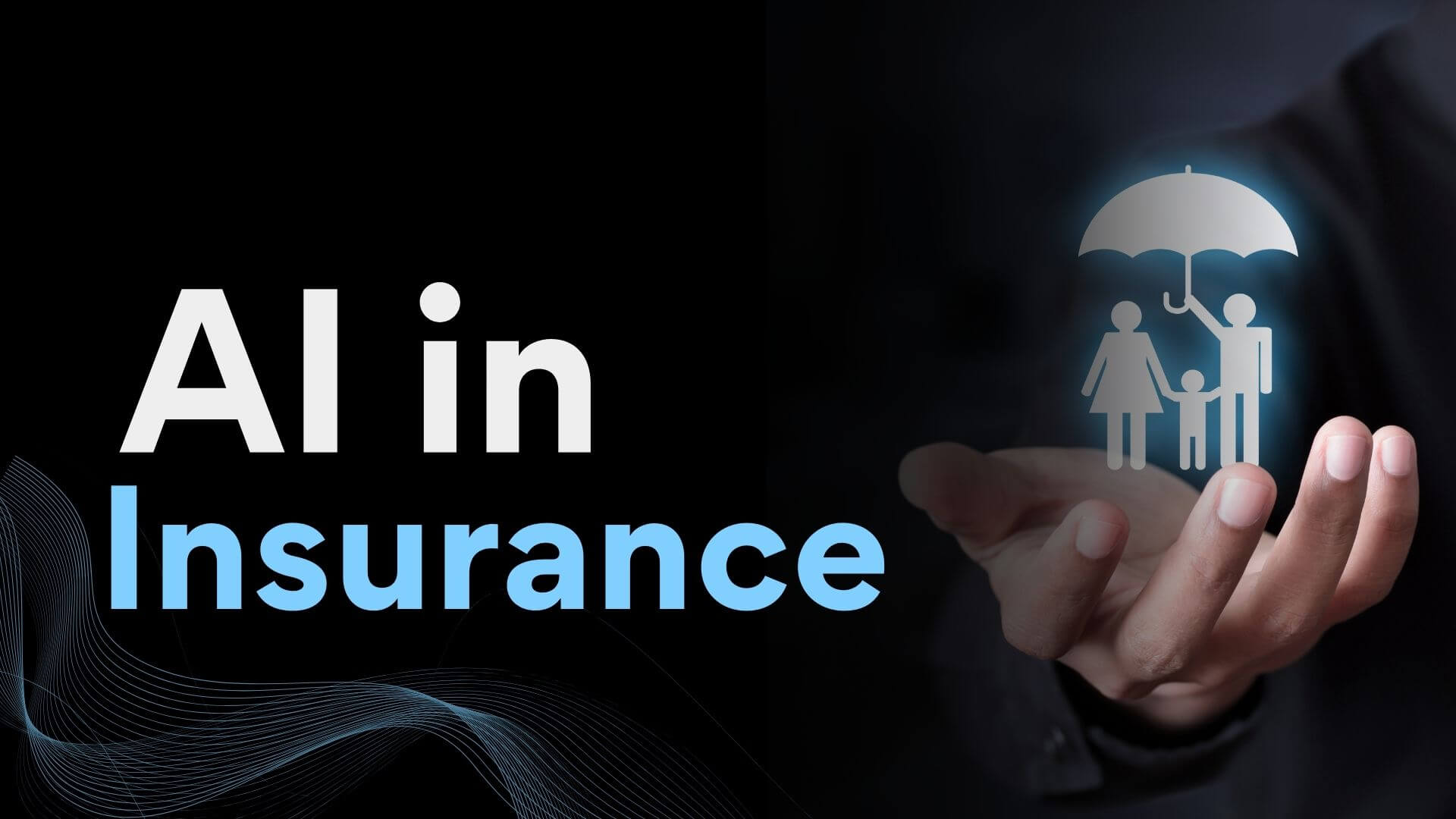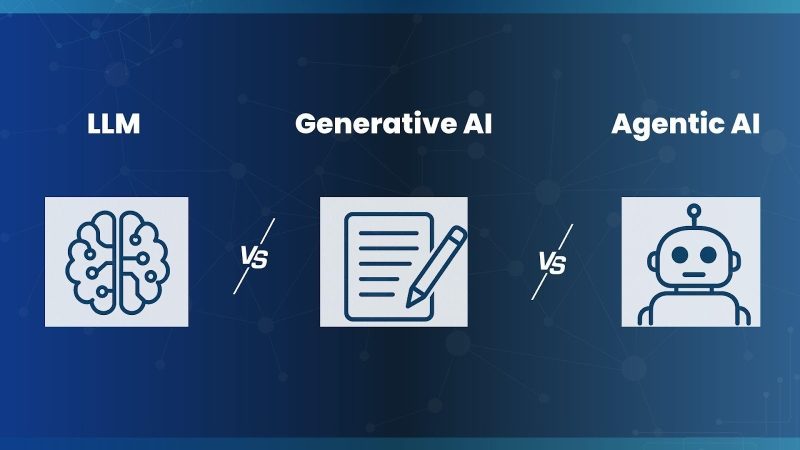Smart Insurance: How AI and RPA Are Reshaping the Industry

Do you know that Insurance companies can save billions by – integrating AI chatbot development with these RPA trends! know How AI and RPA Are Reshaping the Industry
The insurance sector has historically perpetuated activities that require manual work, paperwork, and slow settlements of claims. Fortunately, with Robotic Process Automation (RPA) growing at a fast pace in insurance, the industry is now being changed and enhanced efficiency in addition to accuracy and customer satisfaction.
Moving here to the impact of RPA development services, the latest RPA trends, and also the use of AI chatbot development in the insurance industry. So, let’s take a look at how these technologies are transforming the future of insurance.
Also Read: Why Are AI Agents Essential for Optimizing Marketing and Sales Strategies
The Rise of RPA in the Insurance Space
What is Insurance Robotic Process Automation (RPA)?
Robotic Process Automation (RPA), is the application or use of technology to automate business processes and management. For insurers, this translates into processing claims, managing policies, automating customer interactions, and handling compliance-related tasks.
A report by McKinsey suggests a 30-50% operational cost reduction and a 30X increase in processing speed with RPA in the insurance industry. Insurance companies looking for efficiency find RPA bots invaluable as they work 24/7 without errors.
Leading Insurance RPA Use Cases
1.Claims Processing
Human validation, documentation, and approvals slow traditional claims processing.
The RPA bots automate the processes of data entry, data verification, and process claim approval, lowering processing time from weeks or days to a few hours.
Case Study: A large health insurer in the U.S. used RPA to SPEED UP claims processing time by 60%
2. Underwriting and Risk Assessment
RPA helps underwriters in risk assessment by collecting data from multiple sources, which requires a lot of time for manual work.
Risk assessment is also there that is improved by machine learning models, which predicts delaying this issue like fraud cases.
3. Customer Service Automation
So, it would help if you had something like an AI chatbot for customer service development because it could respond to your policyholders instantly.
AI- and RPA-based chatbots can deal with queries, suggest processes, and even help with renewals.
4. Compliance and Reporting to Regulators
Insurance companies are heavily regulated. RPA is compliance-friendly because it handles documentation and audits through automation and reduces human errors.
The Latest RPA Developments In the Insurance Industry
Insurers evolving the RPA landscape is a facet of time with the use of next-gen technologies to enhance operational efficiency. Here are some of the RPA trends that are revolutionizing the insurance sector:
1.Automation with AI-powered RPA
Today’s RPA tools have evolved to include capabilities with AI and machine learning for intelligent automation. The union of these technologies is referred to as Intelligent Process Automation (IPA) and enables bots to process unstructured data, predict outcomes, and learn based on patterns.
For example, machine learning-based RPA in underwriting cut manual effort by 50% for underwriting decision-making, which saved costs and enabled faster decision-making.
2. Hyper Automation in Insurance
Gartner has predicted that more than 85% of insurance organizations will adopt hyper-automation strategies through 2026 to remain competitive. The emerging term “hyper-automation” refers to a combination of RPA, AI, and analytics to create workflows that are fully automated, with minimal human intervention.
3. No-Code RPA platforms to be in use
To provide insurance automation solutions quickly, insurance companies are using no-code and low-code RPA development services that enable non-technical staff to deploy automation solutions without extensive programming knowledge. This trend is driving increased adoption of RPA across the industry.
4. Customized Customer Engagement Powered by AI Chatbots
One of the most important contributions of AI chatbot development is improved customer experience. Now, NLP is used in more advanced chatbots to enable human-like conversations; they help with policies like claims and policy renewals, FAQs, and Table of Contents.
Also Read: Overcoming Common Challenges in Generative AI Application Development Using Machine Learning
Robotic Process Automation in Insurance: Why Companies are Considering Automation
RPA in insurance offers much more than just cost-cutting benefits. Here are some key advantages:
- Quicker Processing: Approval of claims, underwriting, and policy renewal is also sped up with RPA.
- Enhanced Accuracy: Removes chances of human errors in the data entries and policy processing.
- Cost Savings: Post RPA implementation, companies experience a 30-50% reduction in operational costs.
- Improved Regulation: It automates regulatory reporting and minimizes compliance risk.
- 24/7 Customer Support: AI-powered chatbots can take on questions and policy changes around the clock.
Case Study: How One of the Leading Insurers Used RPA to Reduce Costs
Consider another example of a global insurance enterprise that used RPA development services to ease its claims processing. Automation reduced the average processing time for claim approval from 15 days to 54 minutes after compliance checks were conducted. By implementing RPA, the new processing time was reduced to 3 days, representing a 75% decrease in processing time. Furthermore, they eliminated manual errors and operational inefficiencies, saving $10 million per year.
The Future of RPA and AI in Insurance
The future of robotic process automation (RPA) development services in insurance seems almost certain as some insurers illuminate its potential. Surveys found: One tool to help with this is the UN Sustainable Development Goals.
- 70% of the insurers are currently seeking RPA solutions for process automation.
- Half of companies expect to boost AI investment to improve decision-making.
The insurance industry is adopting a fully automated, customer-driven approach powered by innovative technology like AI chatbot development, machine-learning-driven RPA, hyper-automation, etc.
Conclusion: Why RPA Needs to Be Top of Mind for Insurers
The pace of competitive change brought by digital transformation to insurance is quickening and companies that won’t move towards RPA development services will soon be bearing the consequences. RPA has turned out to be a real game-changer, from claims processing and streamlining to facilitating customer service through AI chatbot development.
In contrast, Insurers have to act on automation to ride high on changing RPA trends. From cost reduction and compliance adherence to enhanced customer experience, RPA in insurance is creating new avenues for growth and efficiency.
Author: Ankit Kumar
Bio: Ankit, a seasoned marketing expert, excels at navigating the ever-evolving landscape of technology and innovation. With a keen eye on current tech trends, he seamlessly bridges the gap between cutting-edge advancements and impactful marketing strategies. Ankit doesn’t just follow trends—he analyzes, adapts, and leverages them to drive business growth and engagement in the fast-paced tech industry. Currently, he brings his expertise to an RPA development company, where he helps shape and promote intelligent automation solutions that redefine business efficiency.






